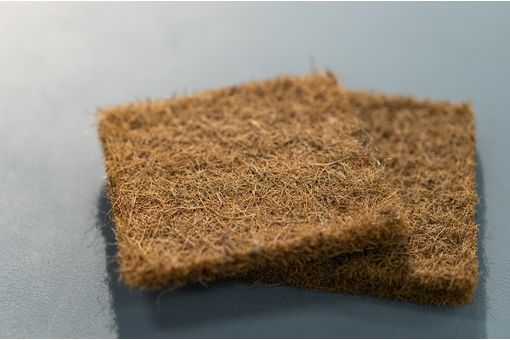Interviews
'High cost of business hitting Pak textile industry'
24 Dec '15
3 min read
All Pakistan Textile Mills Association (APTMA) Chairman Tariq Saud has reiterated that the high cost of doing business has started hitting textile industry severely with more textile mills closing down.
At least 110 textile mills have closed down their operations due to the high cost of doing business, particularly the cost of electricity and gas. “The current state of situation is fast becoming out of control, which is quite evident from the free fall of exports over the last three months,” he said.
Saud said the export data for November 2015 suggested that exports of cotton yarn and cotton fabric had dropped by 45 per cent and 22 per cent respectively against the corresponding period in quantitative terms, consequently an overall decline by 15 per cent in value terms during the same period.
“There is a nominal increase in clothing exports, which constitute $4 billion in total exports of industry as against $8 billion of textiles,” he added. He said the clothing sector had possessed the growth potential of above 20 per cent with the availability of GSP plus facility, but it could not happen because of the adverse circumstances.
Both the spinning and weaving sectors, backbone of the textile value chain, had faced the brunt of high cost of doing business which has made them unviable throughout the country, he said.
He lamented that the government was pressing the textile millers, particularly Punjab, to purchase LNG at $10.10/MMBTU after extending an earlier offer of $8.5/MMBTU. This will make the industry further unviable as against international competitors, he said.
Saud said the Punjab-based textile industry was under severe threat of closure because of non-availability of gas. “Some 100 mills have already been closed down and more are heading to abyss fast.”
He urged the government to immediately announce the remaining part of the textile package. That includes drawback of local taxes and levies (DLTL) scheme to the entire textile value chain and extension of export refinance to spinning and weaving sub-sectors.
“The government must introduce safeguards through tariff, non-tariff measures against the inroads of synthetic yarns and fabrics in domestic market and availability of incentives in the export market by matching the regional support package,” Saud said. (SH)
At least 110 textile mills have closed down their operations due to the high cost of doing business, particularly the cost of electricity and gas. “The current state of situation is fast becoming out of control, which is quite evident from the free fall of exports over the last three months,” he said.
Saud said the export data for November 2015 suggested that exports of cotton yarn and cotton fabric had dropped by 45 per cent and 22 per cent respectively against the corresponding period in quantitative terms, consequently an overall decline by 15 per cent in value terms during the same period.
“There is a nominal increase in clothing exports, which constitute $4 billion in total exports of industry as against $8 billion of textiles,” he added. He said the clothing sector had possessed the growth potential of above 20 per cent with the availability of GSP plus facility, but it could not happen because of the adverse circumstances.
Both the spinning and weaving sectors, backbone of the textile value chain, had faced the brunt of high cost of doing business which has made them unviable throughout the country, he said.
He lamented that the government was pressing the textile millers, particularly Punjab, to purchase LNG at $10.10/MMBTU after extending an earlier offer of $8.5/MMBTU. This will make the industry further unviable as against international competitors, he said.
Saud said the Punjab-based textile industry was under severe threat of closure because of non-availability of gas. “Some 100 mills have already been closed down and more are heading to abyss fast.”
He urged the government to immediately announce the remaining part of the textile package. That includes drawback of local taxes and levies (DLTL) scheme to the entire textile value chain and extension of export refinance to spinning and weaving sub-sectors.
“The government must introduce safeguards through tariff, non-tariff measures against the inroads of synthetic yarns and fabrics in domestic market and availability of incentives in the export market by matching the regional support package,” Saud said. (SH)
Fibre2Fashion News Desk – India
Popular News
Leave your Comments
Editor’s Pick
Pratik Gadia
The Yarn Bazaar - Filosha Infotech Private Limited
































-Ltd..jpg?tr=w-120,h-60,c-at_max,cm-pad_resize,bg-ffffff)





.jpg?tr=w-120,h-60,c-at_max,cm-pad_resize,bg-ffffff)
.jpg?tr=w-120,h-60,c-at_max,cm-pad_resize,bg-ffffff)






